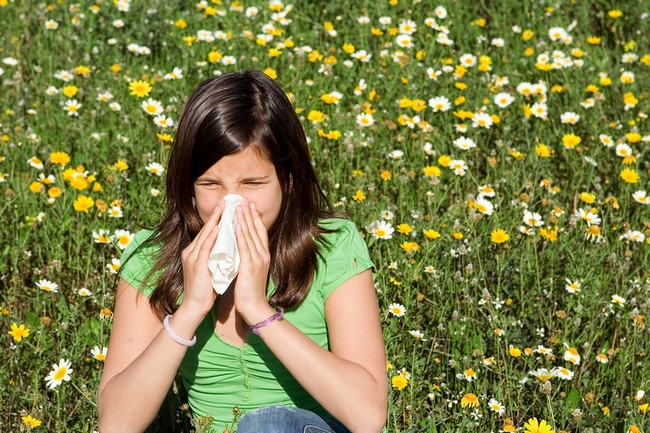- Make It Yourself Lavender Heart-Shaped Bath Bombs!
- 20 Things You Never Knew About “Down There”
- 12 Best Foods For Those Suffering From Arthritis Pain
- 12 Personal Hygiene Mistakes Almost Everyone Makes (Mom Never Told You About #4!)
- 15 Medicinal Plants And Herbs From The Cherokee People
- 12 Mind-Blowing Benefits Of Drinking Coconut Water During Pregnancy
- 12 Outstanding Winter Foods That Won’t Fatten You Up Like A Christmas Turkey
10 Health Woes Summer Brings

Photo credit: bigstock
6. Lyme Disease
This bacterium is carried by deer ticks. Ticks, like fleas, are most active in the warm months of spring, summer, and early fall. They love shady, humid environments. Ticks tend to be found in tall grass, lawns, gardens, under trees in the forest, in woodpiles, and in the crevices of old stone walls.
Protect yourself from ticks and Lyme disease by avoiding walking in places where ticks live, inspect your body for ticks if you should visit the woodland areas, and use insect repellants.
7. Poison ivy, oak, and sumac
Almost 90 percent of us are allergic to the oil that is the sap of plants we call poison ivy, poison oak, and poison sumac. Most of us come into contact with these plants in the summer when we are enjoying the great outdoors. Most people have a painful rash and itching. Luckily, these symptoms can be treated with calamine lotion and over the counter antihistamines.
You don’t have to actually touch these plants, either. If you go walking with your dog and the dog rubs up against this plant, the sap is now on his fur and when you pet him, you will transfer this irritating compound to your skin. So if you think your dog has come into contact with these plants, wash him thoroughly. It will also help you if you learn what these plants look like so you can avoid them.
READ ALSO: Top 10 Toxins that are Inside Your Home Right Now
8. Ear Infections
Swimmer’s ear is also called otitis externa. This is a very common infection that involves the outer ear canal. This happens when natural organisms that live in the water get inside your ear canal. Be sure to dry your ears after swimming or wear a swimming cap. If you swim frequently, don’t clean out that ear wax, it naturally protects your ears from infections.
9. Hyperthermia
Excessive heat will kill more than 650 Americans every year and sends thousands more to local emergency rooms. Does that number sound trivial? Picture this, between 1979 and 2003 more people will die from hyperthermia than from earthquakes, floods, hurricanes, and tornados combined.
Hyperthermia is caused by extreme heat when our bodies absorb more heat than we can get rid of. This leads to extremely high body temperatures that require medical intervention.
On extremely hot summer days, stay inside in air conditioned rooms when possible. Stay well hydrated and never leave children or pets in parked cars for even one minute.
10. Hand, foot, and mouth disease
Don’t confuse this one with hoof and mouth disease! This is a viral infection that involves humans, not sheep and horses. Although it often affects children 5 and under, it does happen to adults as well. Infected persons suffer from mouth sores, fevers, and skin rashes.
There is no vaccine for this virus but practicing good personal hygiene such as disinfecting common household surfaces, toys, and washing your hands can greatly lower your risk of becoming infected.
Sources:

































